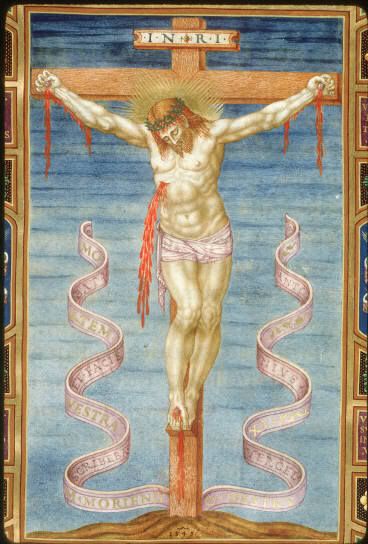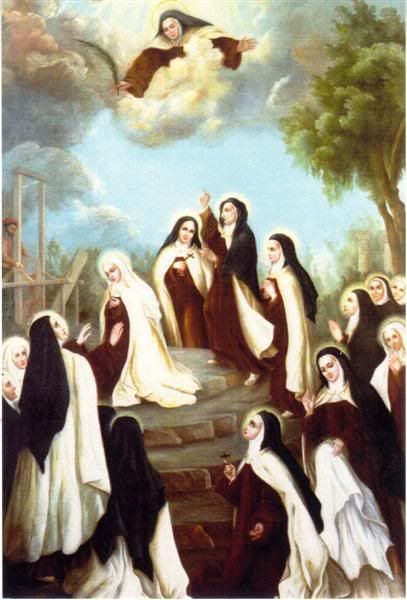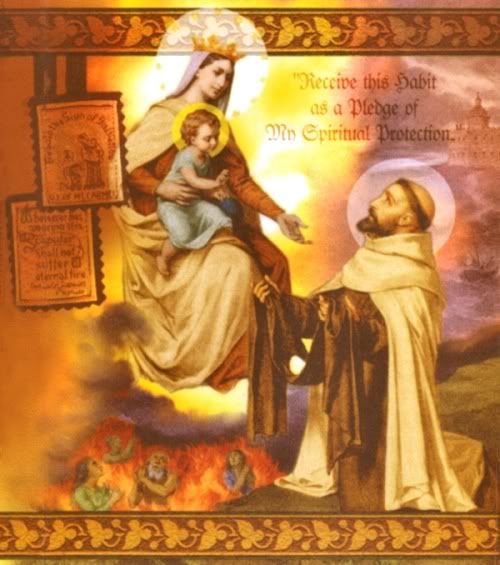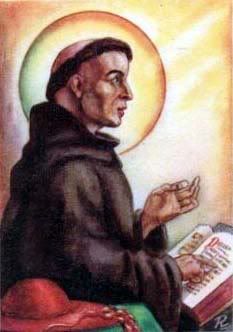Saturday, July 18, 2009
Our Blessed Lady's Saturday

Memorare to Our Lady of the Precious Blood
Remember, O Lady of the Precious Blood, the sorrowful Sheddings of the Blood of thy Jesus and the most bitter tears thou didst mingle with His Redeeming Blood. In the name of the Blood of the Victim of Reparation and of thy holy tears; in the name of the seven swords which pierced thy heart, by which thou didst become the Mediatrix of all graces for the human race and the Queen of Martyrs, have pity on my soul and on all its miseries; have pity on sinners and on the innocent souls they seek to pervert; have pity on the poor, the sick, the infirm, on all their sufferings, both physical and moral; have pity on the agonizing, especially upon those who, except for thine intercession, would leave this world without being purified in the Blood of the Lamb.
It is by the Blood of thy Dying Son, by His inexpressible Sufferings, by His last plea to His Father in favor of mankind, by His ignominious Death and by the perpetuation of His Sacrifice on Catholic Altars, that I beg thee not to reject my supplications, but graciously to hear them. Amen.
Labels: Our Blessed Lady
Friday, July 17, 2009
Friday At the Foot Of the Cross

O Sacred Blood, that flowed so copiously seven times for my salvation, I love Thee, I praise Thee, I adore Thee with the deepest feeling of gratitude! The purest fountain from which Thou didst flow makes Thy memory so sweet. O Precious Blood, with trumpet tones Thou speakest to me of the love of my God and Redeemer. How I deplore my coldness and indifference towards Thee! Now, at last, I wish to return love for love, blood for blood, if necessary. As often as my pulse beats, it shall greet Thee, Thou sweet Guest of my soul, and shall return to the arteries warmed and purified by Thy love. As long as the blood courses through my veins, it shall flow only for love of Thee; it shall circulate only for Thy interests and it shall turn cold and stand still only because I am about to love Thee in eternity. Oh, let this stream of Thy love flow through every heart and inebriate it with holy joy!
My dearest Mother Mary, I beseech Thee with confidence, obtain for me, although thy unworthy child, the blessing of God the Father, by covering me with the merits of thy Son Jesus, that I may regain my eternal birthright in Heaven. Clothe me every evening, Sweet Lady of Mt. Carmel, but especially on the eve of my life, with the "Dyed Garments" of the Precious Blood.
Amen.
Labels: Friday At the Foot Of the Cross
Carmelite Martyrs Of Compeigne

Today is the feast day of the Blessed Carmelites of Compiegne. On July 17th, 1794 a number of Carmelites from that city were guillotined at Paris during the Reign of Terror. Their brutal execution and the manner in which they conducted themselves (mounting the scaffold singing Laudate Domino) helped end the terror. Within a week of their execution, Robespierre fell from power and was himself introduced to Madam Guillotine. That is not merely post hoc ergo propter hoc reasoning. The French public was genuinely shocked at the brutality of the executions of these holy women. And that shock led to a reaction against the Jacobins.
They are very worthy of admiration in my view on two counts. First they were members of the Carmelite order, for which I have a special reverence. The Carmelites were instrumental in bringing me back to an active faith and regular attendance. Secondly, they were martyred by the French revolutionaries in that orgy of blood known as the Terror. Anyone martyred for the sake of the Faith by the French revolutionaries, or the Spanish Communists, or the Russian, Chinese, Cuban, Vietnamese, Laotian, Cambodian Communists, or by the Moslems, or as part of the protestant rebellion, has a special place in my devotions and is a worthy example of the Faith.
A few years ago, John at The Inn At the End of the World posted this about the Carmelite martyrs.
Labels: Our Saintly Brethern
Thursday, July 16, 2009
Our Lady Of Mount Carmel

Flos Carmeli
Flos Carmeli,
vitis florigera,
splendor caeli,
virgo puerpera
singularis.
Mater mitis
sed viri nescia
Carmelitis
esto propitia
stella maris.
Radix Iesse
germinans flosculum
nos ad esse
tecum in saeculum
patiaris.
Inter spinas
quae crescis lilium
serva puras
mentes fragilium
tutelaris.
Armatura
fortis pugnantium
furunt bella
tende praesidium
scapularis.
Per incerta
prudens consilium
per adversa
iuge solatium
largiaris.
Mater dulcis
Carmeli domina,
plebem tuam
reple laetitia
qua bearis.
Paradisi
clavis et ianua,
fac nos duci
quo, Mater, gloria
coronaris.
Amen.
Flower of Carmel,
Tall vine blossom laden;
Splendor of heaven,
Childbearing yet maiden.
None equals thee.
Mother so tender,
Who no man didst know,
On Carmel's children
Thy favors bestow.
Star of the Sea.
Strong stem of Jesse,
Who bore one bright flower,
Be ever near us
And guard us each hour,
who serve thee here.
Purest of lilies,
That flowers among thorns,
Bring help to the true heart
That in weakness turns
and trusts in thee.
Strongest of armor,
We trust in thy might:
Under thy mantle,
Hard press'd in the fight,
we call to thee.
Our way uncertain,
Surrounded by foes,
Unfailing counsel
You give to those
who turn to thee.
O gentle Mother
Who in Carmel reigns,
Share with your servants
That gladness you gained
and now enjoy.
Hail, Gate of Heaven,
With glory now crowned,
Bring us to safety
Where thy Son is found,
true joy to see.
Amen.
Both the reformed and traditional calendars of feasts specify today as the Feast of Our Lady of Mount Carmel. For generations, Carmelite monks maintained a monastery on Mount Carmel in what is now Syria. At the time, the Carmelites were a contemplative order under the patronage of the Blessed Mother.
In the Thirteenth Century, Simon Stock, an Englishman, became general of the Carmelite order. In 1226 Pope Honorious III recognized the rule of the Carmelite order on July 16th. On July 16th, 1251, the Blessed Mother appeared to Simon Stock, and provided him with a brown scapular, with a promise that those who wore it to honor her would be released from Purgatory on the Saturday after they died. This feast was extended to the whole Church in 1726. Simon Stock was later canonized.
I have a special devotion to Our Lady of Mount Carmel. For one thing, July 16th is my birthday. For another, when I returned to an active practice of the Faith many years ago, it was largely through the Carmelites. As I started to become active in the Church again, a Carmelite priest heard my first confession in about ten years. At the time I was a bachelor without very much in the way of direction or guidance. And the Carmelite Gift shop at the North Shore Shopping Center was where I bought so many books that fed my hungry soul, books from TAN, Ignatius, Sophia and Liguori.
The Carmelite Chapel at the North Shore Shopping Center became my regular parish for almost two years. Yes, for those not familiar with the area, there is a Carmelite chapel on the lower level of a shopping mall here (and another Catholic chapel-though not Carmelite- on the main level of the Prudential Mall in Boston). It is very well-frequented - SRO for most of its Saturday Masses. It appeals to people who don't want to be attached to a regular parish, dislike the pastor at their own parish, or just don't have the time or resources to seek out a new parish.
The Carmelite Chapel in Peabody is still a very special place for me.
And since then, I have become acquainted with several third order Carmelites, and one cloistered Carmelite who took her final vows some years ago today in Iowa.
There is, of course, a standard Carmelite Scapular, for members of the order and others. But there are also many acceptable variations of the Brown Scapular. Today, I wear a very special version of the Brown Carmelite Scapular, one that depicts the Sacred and Immaculate Hearts on the front-piece.

Labels: Our Blessed Lady
Tuesday, July 14, 2009
Saint Bonaventure

Today is the feast of this great Franciscan and Doctor Of the Church.
Prayer by Saint Bonaventure:
Pierce, O most sweet Lord Jesus, my inmost soul with the most joyous and healthful wound of Thy love, and with true, calm and most holy apostolic charity, that my soul may ever languish and melt with entire love and longing for Thee, may yearn for Thee and for thy courts, may long to be dissolved and to be with Thee.
Grant that my soul may hunger after Thee, the Bread of Angels, the refreshment of holy souls, our daily and super substantial bread, having all sweetness and savor and every delightful taste.
May my heart ever hunger after and feed upon Thee, Whom the angels desire to look upon, and may my inmost soul be filled with the sweetness of Thy savor; may it ever thirst for Thee, the fountain of life, the fountain of wisdom and knowledge, the fountain of eternal light, the torrent of pleasure, the fullness of the house of God;
may it ever compass Thee, seek Thee, find Thee, run to Thee, come up to Thee, meditate on Thee, speak of Thee, and do all for the praise and glory of Thy name, with humility and discretion, with love and delight, with ease and affection, with perseverance to the end; and be Thou alone ever my hope, my entire confidence, my riches, my delight, my pleasure, my joy, my rest and tranquility, my peace, my sweetness, my food, my refreshment, my refuge, my help, my wisdom, my portion, my possession, my treasure; in Whom may my mind and my heart be ever fixed and firm and rooted immovably. Amen
Labels: Our Saintly Brethern
Sunday, July 12, 2009
The Sixth Sunday After Pentecost
From The Liturgical Year, by Abbot Prosper Geranger, OSB:
THE Office for the sixth Sunday after Pentecost, which began yesterday evening, reminded us, in its Magnificat antiphon, of a repentance which has never had an equal. David, the royal prophet, the conqueror of Goliath, himself conquered by sensuality, and from adulterer become a murderer, at last felt the crushing weight of his double crime, and exclaimed: Ido beseech thee, O Lord, take away the iniquity of thy servant, for I have done foolishly!?1 Sin is always a folly and a weakness, no matter of what kind it may be, or who he be that commits it. The rebel angel, and fallen man, may, in their pride, make efforts to persuade themselves that, when they sinned, they did not act as fools, and were not weak; but all their efforts are vain; sin must ever have this disgrace upon it, that it is folly and weakness, for it is a revolt against God, a contempt for His law, a mad act of the creature, who, being made by his Creator to attain infinite happiness and glory, prefers to debase himself by turning towards nothingness, and then falls even lower than the nothingness from which he was taken. It is, however, a folly that is voluntary, and a weakness that has no excuse; for, although the creature have nothing of his own but darkness and misery, yet his infinitely merciful Creator, by means of His grace, which is never, wanting, puts within that creature's ach divine strength and light. It is so with even the sinner that has been the least liberally gifted; he has no reason that can justify his offences. But when he that sins is a creature who has been laden with God'sifts, and, by His divine generosity, been raised higher than others in the order of grace, oh! then the offence he commits against his benefactor is an injury that has no name. Let this be remembered by those who, like David, could say that their God has mltiplied His magnificence?over them. 2 They may, perhaps, have been led by Him into high paths which are reserved for the favoured few, and may have reached the heights of divine union: yet must they be on their guard; no one who has still to carry with him the burden of a mortal body of flesh is safe, unless by exercising a ceaseless vigilance. On the mountains, as on the plains and in the valleys, at all times and in all places, a fall is possible; but when it is on those lofty peaks which, in this land of exile, seem bordering on heaven, and but one step from the etrance into the powers of the Lord,? what a terrific fall when the foot slips there! The yawning precipices which that soul had avoided on her ascent are now all open to engulf her; abyss after abyss of crime she rushes into, and with a violence of passion that terrifies even them that have long been nothing but wickedness.
Poor fallen soul! pride, like that of satan, will now try to keep her obstinately fixed in her crimes: but, from the depths into which she has fallen, let her, like David, send forth the cry of humility; let her lament her abominations; let her not be afraid to look up, through her tears, at those glorious heights which were once her abode n anticipated heaven. Without further delay, let her imitate the royal penitent, and say with him: I ave sinned against the Lord!?and she will hear the same answer that he did: T Lord hath taken away thy sin; thou shalt not die? and as with David, so also with her, God may still do grand things in her. David, when innocent, was a faithful image of Christ, who was the object of the love of both heaven and earth; David, sinner but penitent, was still the figure of the Man-God, as laden with the sins of the whole world, and bearing on His single self the merciful and just vengeance of His offended Father.
In the Mass of this Sunday, which they call the sixth of Saint Matthew, the Greeks read the account of the cure of the paralytic, which is related in the ninth chapter of that evangelist. The preceding chapter, with its episode of the centurion and the two possessed, had furnished them with the Gospels for their fourth and fifth Sundays.
MASS
It is difficult to see what connexion there is between the Mass and the Office of this Sunday, as they are at present arranged. Honorius of Autun and Durandus applied the Introit and the other sung portions which follow, to the inauguration of Solomon's reign. At the period when those two writers lived, the Scripture lessons for this Sunday were taken from the first pages of the second Book of Paralipomenon, where we have the account of the glorious early days of David's son. But, since that time, it has been the Church's practice to continue the reading of the four Books of Kings up to the month of August, omitting altogether the two Books of Paralipomenon, which were but a practical repetition of the events already, related in previous lessons. So that the connexion suggested by the two writers just mentioned has no foundation in the actual arrangement of to-day's liturgy. We must, therefore, be satisfied with taking from the Introit the teaching of what it is that constitutes the Christian's courage, viz., his faith in God's power which is always ready to help him, and the conviction of his own nothingness, which keeps him from all presumption.
THE Office for the sixth Sunday after Pentecost, which began yesterday evening, reminded us, in its Magnificat antiphon, of a repentance which has never had an equal. David, the royal prophet, the conqueror of Goliath, himself conquered by sensuality, and from adulterer become a murderer, at last felt the crushing weight of his double crime, and exclaimed: Ido beseech thee, O Lord, take away the iniquity of thy servant, for I have done foolishly!?1 Sin is always a folly and a weakness, no matter of what kind it may be, or who he be that commits it. The rebel angel, and fallen man, may, in their pride, make efforts to persuade themselves that, when they sinned, they did not act as fools, and were not weak; but all their efforts are vain; sin must ever have this disgrace upon it, that it is folly and weakness, for it is a revolt against God, a contempt for His law, a mad act of the creature, who, being made by his Creator to attain infinite happiness and glory, prefers to debase himself by turning towards nothingness, and then falls even lower than the nothingness from which he was taken. It is, however, a folly that is voluntary, and a weakness that has no excuse; for, although the creature have nothing of his own but darkness and misery, yet his infinitely merciful Creator, by means of His grace, which is never, wanting, puts within that creature's ach divine strength and light. It is so with even the sinner that has been the least liberally gifted; he has no reason that can justify his offences. But when he that sins is a creature who has been laden with God'sifts, and, by His divine generosity, been raised higher than others in the order of grace, oh! then the offence he commits against his benefactor is an injury that has no name. Let this be remembered by those who, like David, could say that their God has mltiplied His magnificence?over them. 2 They may, perhaps, have been led by Him into high paths which are reserved for the favoured few, and may have reached the heights of divine union: yet must they be on their guard; no one who has still to carry with him the burden of a mortal body of flesh is safe, unless by exercising a ceaseless vigilance. On the mountains, as on the plains and in the valleys, at all times and in all places, a fall is possible; but when it is on those lofty peaks which, in this land of exile, seem bordering on heaven, and but one step from the etrance into the powers of the Lord,? what a terrific fall when the foot slips there! The yawning precipices which that soul had avoided on her ascent are now all open to engulf her; abyss after abyss of crime she rushes into, and with a violence of passion that terrifies even them that have long been nothing but wickedness.
Poor fallen soul! pride, like that of satan, will now try to keep her obstinately fixed in her crimes: but, from the depths into which she has fallen, let her, like David, send forth the cry of humility; let her lament her abominations; let her not be afraid to look up, through her tears, at those glorious heights which were once her abode n anticipated heaven. Without further delay, let her imitate the royal penitent, and say with him: I ave sinned against the Lord!?and she will hear the same answer that he did: T Lord hath taken away thy sin; thou shalt not die? and as with David, so also with her, God may still do grand things in her. David, when innocent, was a faithful image of Christ, who was the object of the love of both heaven and earth; David, sinner but penitent, was still the figure of the Man-God, as laden with the sins of the whole world, and bearing on His single self the merciful and just vengeance of His offended Father.
In the Mass of this Sunday, which they call the sixth of Saint Matthew, the Greeks read the account of the cure of the paralytic, which is related in the ninth chapter of that evangelist. The preceding chapter, with its episode of the centurion and the two possessed, had furnished them with the Gospels for their fourth and fifth Sundays.
MASS
It is difficult to see what connexion there is between the Mass and the Office of this Sunday, as they are at present arranged. Honorius of Autun and Durandus applied the Introit and the other sung portions which follow, to the inauguration of Solomon's reign. At the period when those two writers lived, the Scripture lessons for this Sunday were taken from the first pages of the second Book of Paralipomenon, where we have the account of the glorious early days of David's son. But, since that time, it has been the Church's practice to continue the reading of the four Books of Kings up to the month of August, omitting altogether the two Books of Paralipomenon, which were but a practical repetition of the events already, related in previous lessons. So that the connexion suggested by the two writers just mentioned has no foundation in the actual arrangement of to-day's liturgy. We must, therefore, be satisfied with taking from the Introit the teaching of what it is that constitutes the Christian's courage, viz., his faith in God's power which is always ready to help him, and the conviction of his own nothingness, which keeps him from all presumption.
Labels: The Liturgical Year






































































































